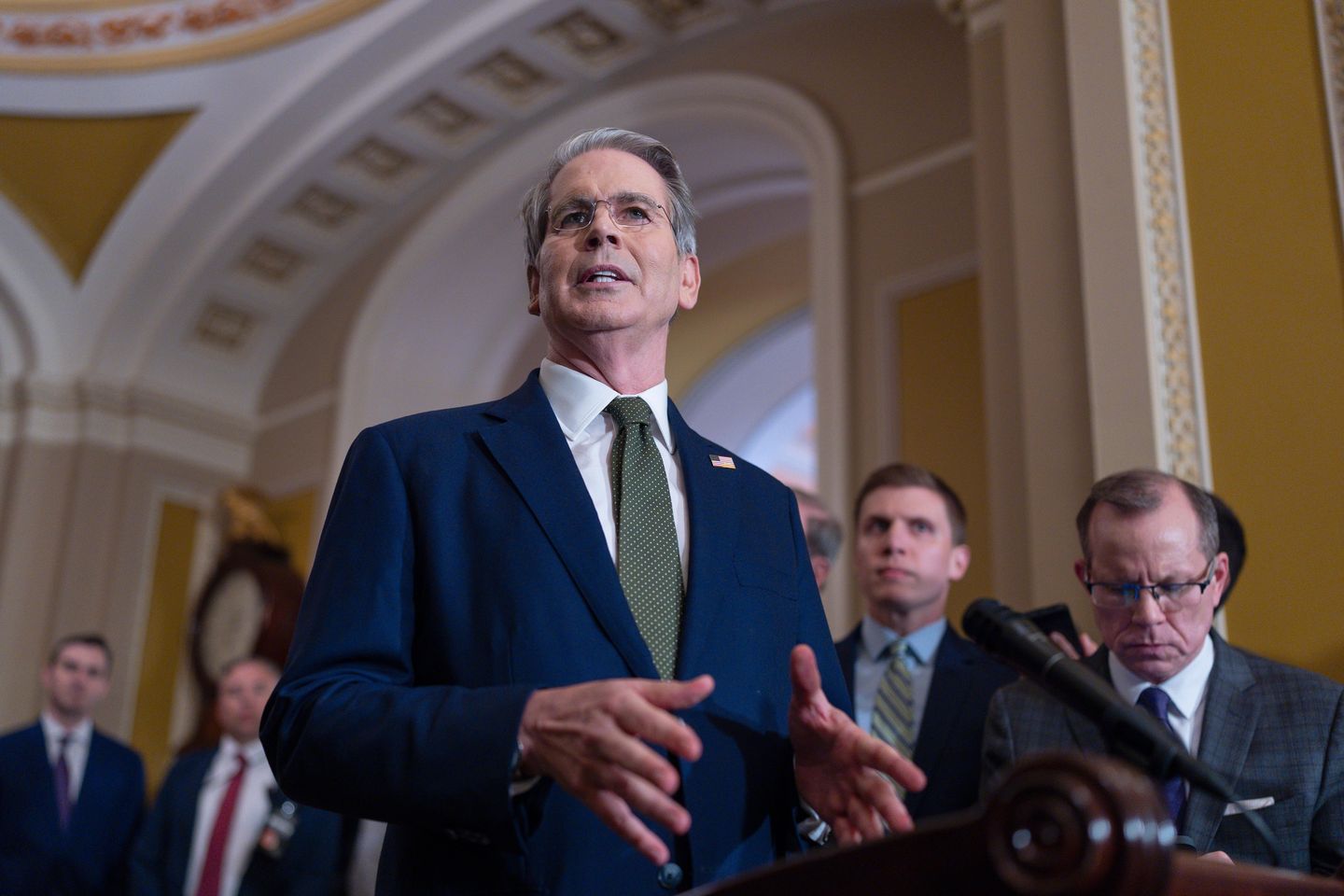
Republicans may only temporarily increase the cap on the amount of state and local taxes that can be deducted on federal tax returns, in an emerging compromise to one of the major issues holding up President Trump’s “big, beautiful bill.”
As they move closer to resolving key issues, Senate Republicans are aiming to hold a procedural test vote on the bill Saturday. But GOP leaders still have some work to do to shore up the votes, as Medicaid and other provisions continue to vex some Senate Republicans.
Still, resolving a long-running intraparty dispute over the state and local tax deduction, known as SALT, would be a giant step forward in the cumbersome negotiating process.
The SALT deduction is currently capped at $10,000. The House-passed version of the Trump agenda bill proposed permanently lifting it to $40,000, with a 1% annual bump to account for inflation. The Senate preferred to stick to the existing $10,000 limit.
A compromise lawmakers have been discussing would do both: It would temporarily lift the cap to $40,000 and, five years later, drop it back down to $10,000.
Final details are still being negotiated, but lawmakers are optimistic the proposal will lead to a final SALT deal as soon as Friday night.
“I feel like we’re getting really close to landing the plane,” said Oklahoma Sen. Markwayne Mullin, who has been leading negotiations on behalf of Senate Republicans.
Treasury Secretary Scott Bessent has also been involved in the negotiations with the blue-state House Republicans who have been fighting for the SALT cap increase.
Mr. Bessent and House Speaker Mike Johnson, Louisiana Republican, attended a Senate Republican lunch meeting on Friday afternoon where the SALT proposal was discussed.
“We’re very, very close,” Mr. Bessent told reporters after, when asked about the SALT deal. He declined to provide details.
Senate Republicans said they still don’t love raising the cap at all but appeared ready to accept the compromise.
“Speaker Johnson’s remarkable. I mean, the guy’s pulled a rabbit out of his hat, I don’t know how many times. Now, if he’s coming over here and telling us that’s the best he can do … then we may have to go with that,” said Sen. John Hoeven, North Dakota Republican.
Several Senate Republicans left the lunch meeting saying the chamber could hold a test vote, a motion to proceed to the One Big, Beautiful Bill, on Saturday at noon.
Senate Majority Leader John Thune, South Dakota Republican, said noon is “aspirational,” but he hopes to hold the initial procedural vote midday Saturday, so they can begin the up to 20 hours of required debate and then proceed into a marathon vote-a-rama on amendments before final passage.
He said that timing will depend on rulings they’re still waiting on from the Senate parliamentarian on various provisions they’re rewriting to try to bring them into compliance with the rules for budget reconciliation, the filibuster-proof process Republicans are using to advance the bill.
Republicans believe they’ve found a workable fix to their Medicaid provider tax crackdown that the Senate parliamentarian ruled against because she didn’t think it gave states enough time to react to the changes, which would require most states to find alternative sources of funding for their Medicaid programs.
Mr. Hoeven said the tweak being floated to the parliamentarian would delay implementation of the provider tax changes for another year.
Some Senate Republicans, however, are still unhappy with the proposal, saying the effort to limit provider taxes could have significant impacts on their states.
Sen. Thom Tillis, North Carolina Republican, told reporters he will vote against the bill without more substantial revisions to the Medicaid provisions. Others have continued to raise concerns that the Senate’s Medicaid changes go too far, but they have not said how they would vote.
Three GOP fiscal hawks, Sens. Ron Johnson of Wisconsin, Mike Lee of Utah and Rick Scott of Florida, who have been demanding deeper spending cuts, including to Medicaid, are waiting to see the final bill but have said they plan to vote as a bloc.
Sen. Rand Paul, Kentucky Republican, has been a “no” for weeks because of the $5 trillion debt limit increase in the bill. He reaffirmed his opposition Friday, saying the legislation is not a serious effort to reduce the deficit.
Mr. Thune demurred when asked if he’d have the minimum 50 votes he needs to adopt the motion to proceed to the bill, with Vice President J.D. Vance available to break a tie.
“We’ll find out tomorrow,” he said.
Sen. John Kennedy, Louisiana Republican, estimated 80% of the 53 Senate Republicans are ready to start voting on the bill after weeks of conference meetings and internal debates.
“We’re gradually going from thoughtful, rational deliberation into the foothills of jackassery,” he said. “I mean, we’re talking about the same things over and over and over. It’s clear we’re not going to get unanimity on some of this. That’s why God made votes. That’s why God made amendments.”




![Man Arrested After Screaming at Senators During Big Beautiful Bill Debate [WATCH]](https://www.right2024.com/wp-content/uploads/2025/06/Man-Arrested-After-Screaming-at-Senators-During-Big-Beautiful-Bill-350x250.jpg)












